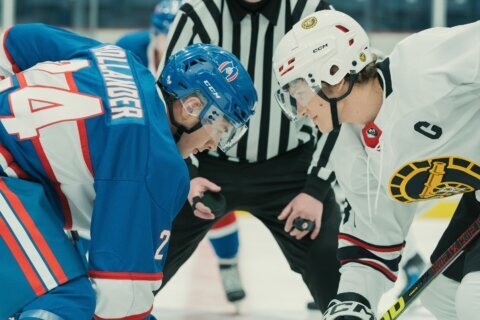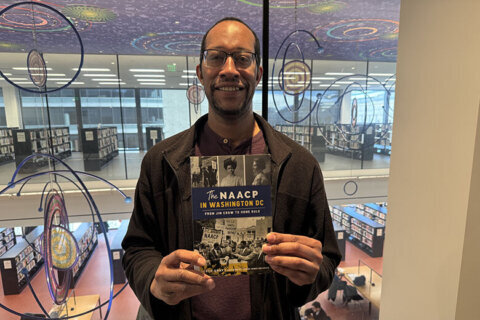The drowning of a grandfather of 17, who jumped into the Washington Channel more than 30 minutes after an initial 911 call, has prompted the District’s Office of Unified Communications to review procedures when Fire and EMS calls for help from police.
David Earl Griffin, 47, died on March 14 after more than a half-hour encounter with ambulance crews, who were initially dispatched at 6:15 p.m. for a drug overdose and classified as Priority 2 — a non-urgent call.
Safety advocate and former reporter Dave Statter, in his Statter911 blog, spoke with police and fire sources, who said DC 911 failed to upgrade the emergency response, during an increasingly dangerous situation.
Statter said 911 callers described a man jumping on cars, seemingly under the influence of drugs, near the corner of 4th and N Streets SW.
“Not only did these calls come from 911, but the ambulance crew initially dispatched said they needed police there, as soon as possible,” Statter said.
In radio traffic, posed on Statter911, an out-of-breath ambulance crew member described an out-of-control situation.
“The patient, he’s running all over the place, he’s hurting himself, we can’t contain him,” said the first responder.
Griffin continued to evade the ambulance crew, who followed him several blocks from where fire and crews had been dispatched.
By 6:42 p.m., when the ambulance crew called a 10-33, meaning they were in imminent danger, Statter said DC 911 had not upgraded the call, or described the change of location.
“A firefighter assigned to the fireboat witnessed the ambulance crew struggling with Griffin and can be heard on the radio quickly notifying his police counterparts,” said Statter.
Moments later, Griffin was in the Washington Channel.
“He jumped in the water,” alerted the ambulance crew member who had been chasing Griffin.
“Jumper, jumper, south side of the pier. One in the water. Be advised, he’s the assailant in the ambulance, use caution,” said the firefighter on the boat.
Statter said the police response was further hampered, by not knowing the location of the struggle.
“When D.C. police got there, they had no clue that the whole scene had moved more than two blocks away,” said Statter. “They had to talk to people on the street to find out, ‘Where’s the ambulance crew?'”
By the time police got to Griffin, he was dead.
“He was a devoted father with 17 grandchildren. He loved his family and would have helped anyone in need or in crisis,” said Griffin’s daughter, Aujah, in a statement. “It saddens me that this unfortunate outcome could have potentially been avoided had he had the help he clearly needed in his final moments.”
DC 911 responds
The Office of Unified Communication has completed its investigation regarding the response to the drowning.
“OUC received several 911 calls and based on the information given, the calls were appropriately classified as a Priority 2,” Wanda Royster Gattison, an OUC spokeswoman, said in a statement. “The on duty police dispatcher repeatedly voiced the call but unfortunately no officers were available for immediate dispatch due to the volume of higher priority calls.”
Gattison said as the event escalated and fire crews ultimately issued a distress call, “the call was immediately upgraded and police arrived in less than a minute.”
However, Gattison said there was room for improvement in the agency’s handling of the situation.
“As a result of the investigation, the police dispatcher involved and the supervisory staff on duty that evening have been counseled to review how this might have been handled better (i.e. the policy of raising an official to assist with dispatch coordination if there is a DC Fire and EMS request for support from the police),” Gattison wrote.
Statter spoke privately with police and fire officials familiar with the incident: “They all say this should have been a Priority 1 call for police. This was more than just a simple overdose. This was somebody violently out of control, harming themselves, possibly a threat to others.”
“They needed help right away, and that help wasn’t coming. And a big part of the reason it didn’t come is because DC 911 didn’t relay that urgency,” Statter said.








